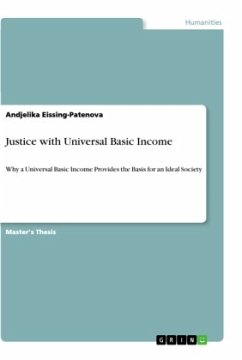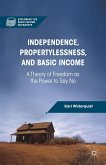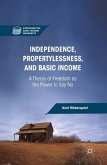Master's Thesis from the year 2020 in the subject Philosophy - Practical (Ethics, Aesthetics, Culture, Nature, Right, ...), grade: 1,00, University of Salzburg, language: English, abstract: The author argues for the claim that a universal basic income (UBI) provides the basis for an ideal society, i.e. one that provides the greatest justice possible. By first analyzing four key approaches in political philosophy - utilitarian, libertarian, meritocratic and egalitarian distributive principles - it will turn out that the latter are best suited for establishing an ideal society.In particular, John Rawls' egalitarian principles of justice guarantee for all members of a society equal liberty rights and additionally claim rights, which can compensate for the inequalities resulting from the destiny of birth. Then, the paper shows why a UBI can realize Rawls' distributive principles particularly well and why therefore, a UBI provides the basis for an ideal society. In the last part, different funding sources for a UBI will be assessed philosophically. A (negative) income tax system and a consumption tax system are analyzed along the three criteria of fairness, simplicity and efficiency. Finally, a mixed model is discussed, which seems to be the most promising strategy for funding a UBI. However, since a (negative) income tax is not an optimal solution, a mixed funding model should rather contain a consumption tax and further tax sources.
Hinweis: Dieser Artikel kann nur an eine deutsche Lieferadresse ausgeliefert werden.
Hinweis: Dieser Artikel kann nur an eine deutsche Lieferadresse ausgeliefert werden.








